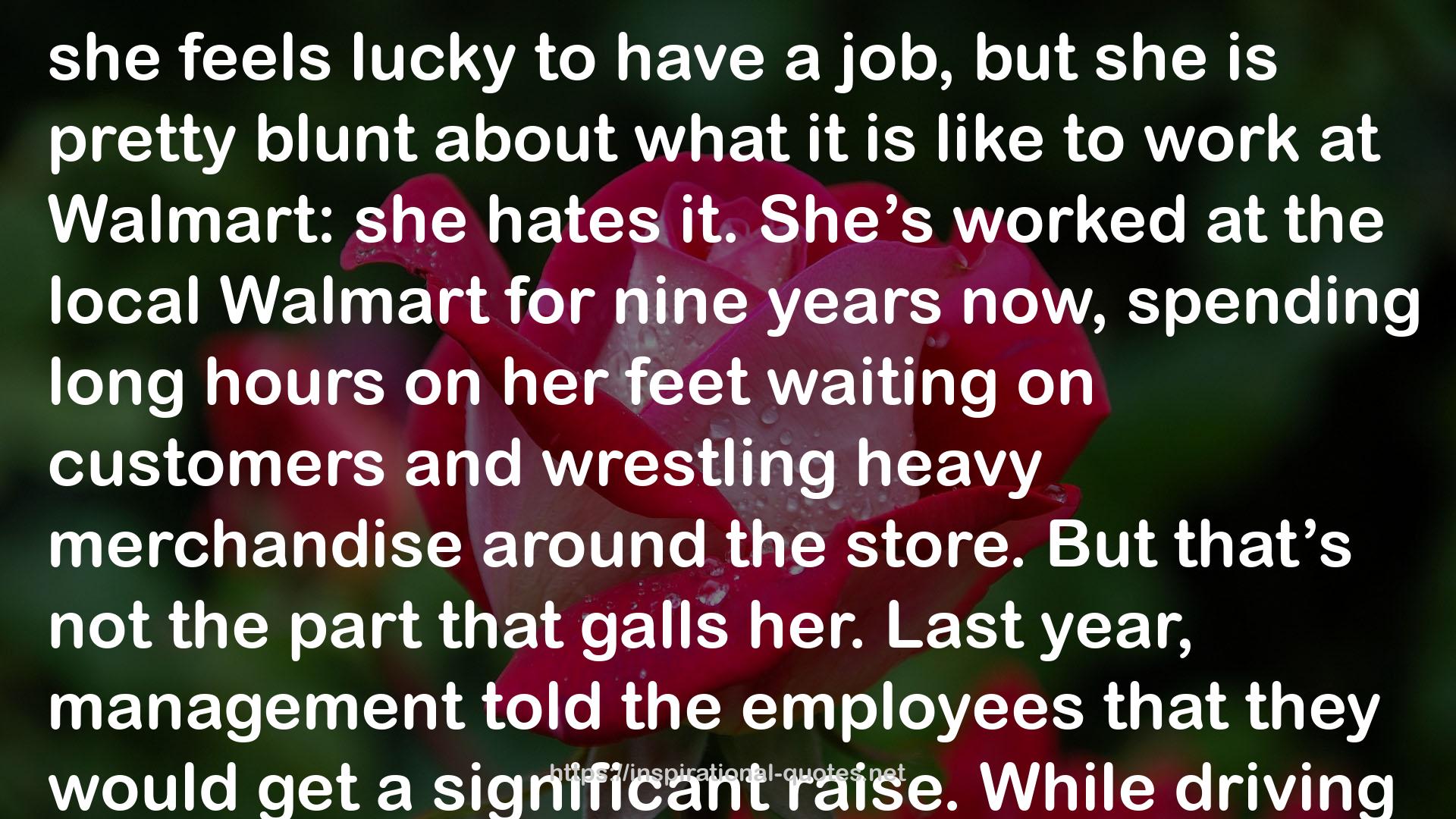" she feels lucky to have a job, but she is pretty blunt about what it is like to work at Walmart: she hates it. She’s worked at the local Walmart for nine years now, spending long hours on her feet waiting on customers and wrestling heavy merchandise around the store. But that’s not the part that galls her. Last year, management told the employees that they would get a significant raise. While driving to work or sorting laundry, Gina thought about how she could spend that extra money. Do some repairs around the house. Or set aside a few dollars in case of an emergency. Or help her sons, because “that’s what moms do.” And just before drifting off to sleep, she’d think about how she hadn’t had any new clothes in years. Maybe, just maybe. For weeks, she smiled at the notion. She thought about how Walmart was finally going to show some sign of respect for the work she and her coworkers did. She rolled the phrase over in her mind: “significant raise.” She imagined what that might mean. Maybe $2.00 more an hour? Or $2.50? That could add up to $80 a week, even $100. The thought was delicious. Then the day arrived when she received the letter informing her of the raise: 21 cents an hour. A whopping 21 cents. For a grand total of $1.68 a day, $8.40 a week. Gina described holding the letter and looking at it and feeling like it was “a spit in the face.” As she talked about the minuscule raise, her voice filled with anger. Anger, tinged with fear. Walmart could dump all over her, but she knew she would take it. She still needed this job. They could treat her like dirt, and she would still have to show up. And that’s exactly what they did. In 2015, Walmart made $14.69 billion in profits, and Walmart’s investors pocketed $10.4 billion from dividends and share repurchases—and Gina got 21 cents an hour more. This isn’t a story of shared sacrifice. It’s not a story about a company that is struggling to keep its doors open in tough times. This isn’t a small business that can’t afford generous raises. Just the opposite: this is a fabulously wealthy company making big bucks off the Ginas of the world. There are seven members of the Walton family, Walmart’s major shareholders, on the Forbes list of the country’s four hundred richest people, and together these seven Waltons have as much wealth as about 130 million other Americans. Seven people—not enough to fill the lineup of a softball team—and they have more money than 40 percent of our nation’s population put together. Walmart routinely squeezes its workers, not because it has to, but because it can. The idea that when the company does well, the employees do well, too, clearly doesn’t apply to giants like this one. Walmart is the largest employer in the country. More than a million and a half Americans are working to make this corporation among the most profitable in the world. Meanwhile, Gina points out that at her store, “almost all the young people are on food stamps.” And it’s not just her store. Across the country, Walmart pays such low wages that many of its employees rely on food stamps, rent assistance, Medicaid, and a mix of other government benefits, just to stay out of poverty. The "
― Elizabeth Warren , This Fight Is Our Fight: The Battle to Save America's Middle Class
